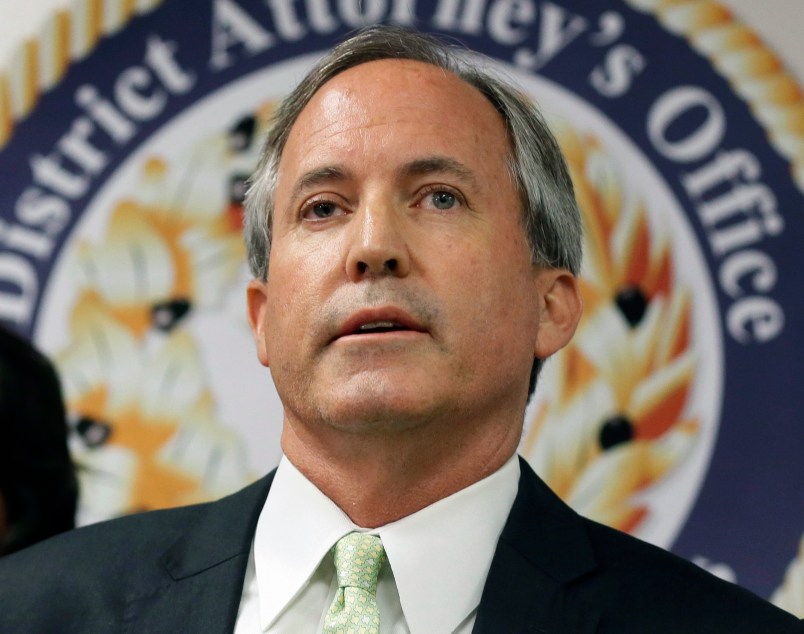The effort to loosen Texas’ absentee voting restrictions during the pandemic suffered a blow Wednesday. A ruling by the Texas Supreme Court formally reversed orders by lower courts declaring coronavirus a valid excuse to vote absentee.
Voting rights groups and state Democrats had argued that lack of immunity to COVID-19 should qualify as a type of “disability” that Texas state law allows for voting absentee. Texas fought this interpretation of the law vehemently in court, and top state officials echoed President Trump’s baseless claims about the potential for voter fraud.
The state supreme court disagreed Wednesday with the claim that lack of immunity to COVID-19 alone was a sufficient reason to vote absentee. The majority decision nonetheless hinted that voters who suffered additional health conditions that made them vulnerable to the virus could still cite the “disability” excuse to vote absentee. Several justices filed concurrences, but none wholeheartedly adopted the Democrats’ and voter groups’ arguments.
A federal lawsuit seeking to open up absentee voting in Texas continues. Last week, a federal trial court judge sided with the Democrats, but that decision has temporarily been put on hold while the conservative U.S. Court of Appeals for the 5th Circuit hears the case.
The legal battle over coronavirus absentee voting in Texas has been particularly nasty. As part of the broader litigation, the state aggressively went after local election officials who had suggested that voters cast ballots absentee if they feared contracting the virus by voting in person.
The state supreme court, even while agreeing with Texas on its interpretation of the law, rejected its attempts to micromanage how the local clerks — and particularly election officials in five large Democratic counties — were handling absentee ballot applications.
The court said that “we are confident that the Clerks and all election officials will comply with the law in good faith” while acknowledging that “election officials have no responsibility to question or investigate a ballot application that is valid on its face.”
The state supreme court essentially put the burden on voters to determine whether their particular health histories combined with the outbreak could count as a “disability” under absentee voting law. In doing so, the court may have still left those voters vulnerable to prosecutions or threats of prosecution. Texas Attorney General Ken Paxton in particular has made sensational statements about how aggressively he will go after those he believes violated state election law.
Wednesday’s decision”is a recipe for disaster,” Rick Hasen, an election law expert at UC-Irvine, wrote at Slate.
“It will lead Paxton to publicize the argument that lack of immunity and fear of getting the disease is not a valid excuse to vote by mail, and that anyone who advises someone else to claim disability to vote by mail is engaged in a criminal conspiracy to commit voter fraud,” Hasen said, warning of the possibility “for Paxton to frighten possibly qualifying voters into not voting, or to go after those who do.”







Did they vote on this remotely, because of, you know, Covid-19?
At the rate Trumpism is going, the Trumpists may lose TX anyway.
Yea, this is a strange one. From what I read:
But it further says that election officials won’t check the validity of excuses and it will be up to each voter, acting in good faith, to determine whether they have the ability safely vote by mail. This “don’t ask, don’t tell” policy is a recipe for disaster in a state in which Attorney General Ken Paxton has already [threatened with criminal prosecution] those who advise voters who lack immunity and fear the disease to vote by mail. And it cries for federal court relief.
(https://www.vox.com/2020/4/17/21223994/texas-disenfranchise-millions-ken-paxton-physical-condition-democratic-party-debeauvoir)
WTF???
If Wisconsin is any indication, pissed-off Dem voters will show up in droves to kick the GOPers sorry asses out of office.
Indeed they did.